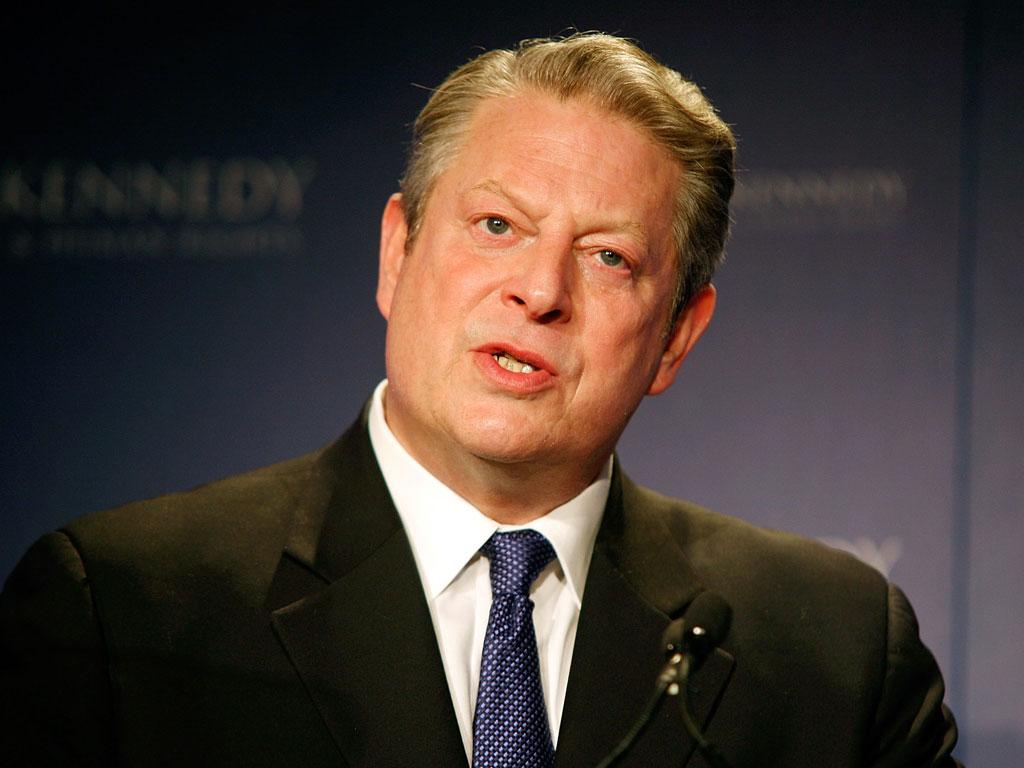Gore wades into British Antarctic row
Former US vice-president joins scientists in battle over controversial merger plans

Your support helps us to tell the story
From reproductive rights to climate change to Big Tech, The Independent is on the ground when the story is developing. Whether it's investigating the financials of Elon Musk's pro-Trump PAC or producing our latest documentary, 'The A Word', which shines a light on the American women fighting for reproductive rights, we know how important it is to parse out the facts from the messaging.
At such a critical moment in US history, we need reporters on the ground. Your donation allows us to keep sending journalists to speak to both sides of the story.
The Independent is trusted by Americans across the entire political spectrum. And unlike many other quality news outlets, we choose not to lock Americans out of our reporting and analysis with paywalls. We believe quality journalism should be available to everyone, paid for by those who can afford it.
Your support makes all the difference.Al Gore, former US vice-president and perhaps the world's best-known environmental activist, last week waded into a row over the fate of the British Antarctic Survey (BAS), one of the UK's most distinguished scientific operations.
Controversial plans to merge the BAS and the National Oceanography Centre (NOC), to save money, were revealed by this paper in April. Since then, scientists and politicians have said the move could seriously compromise scientific work in the Antarctic and weaken the British presence in the region.
The Natural Environment Research Council (Nerc), which funds the BAS and the NOC, last month laid out its plans in a consultation document with the proposal to create a single centre for marine and polar science, likely to be based in Southampton. But scientists in both organisations remain hugely sceptical as to whether the merger will save money or improve scientific output.
In a letter, seen by The Independent on Sunday, Mr Gore calls the BAS a "national and international asset".
The British Antarctic Survey, since 1962, has been the UK's operation in Antarctica. Its scientists discovered the hole in the ozone layer in the 1980s, and, this December, they will drill through 3km of solid ice at Lake Ellsworth to extract clues to past climate. However, the BAS also provides the UK with a presence in the Southern Ocean, including the Falkland Islands. at a time when diplomatic relations have often been strained between Argentina and Britain.
Mr Gore wrote: "From my personal knowledge, the BAS is a globally significant organisation... In my view retaining the core elements of the BAS, integrated into a single unit with strong leadership, is of supreme importance, both as a UK national and international asset."
His letter comes as leading scientists spoke out this weekend. Sir Martin Holdgate, one of the UK's most distinguished scientists and a former member of the Nerc Council, said the lack of financial plans in the consultation was a "piece of breath-taking deviousness". "The more I consider the matter," he said in a written response, "the more I am convinced the two institutes should remain apart."
The IoS has also learnt that there is likely to be a select committee inquiry later this month into the decision. Andrew Miller MP, chair of the Science and Technology Select Committee, said he would recommend to the committee they "have at least one evidence session" on the issue. But he added: "The issue of the merger seems to be a done deal."
The IoS understands that members of the Falkland Islands government are to lobby MPs at the Conservative Party conference this week, over fears that any change to the BAS name – especially the removal of the word "British" – could send signals to the Argentinians that the UK is weakening its status in the region.
Dr Mike Richardson, who was Foreign and Commonwealth Office head of polar regions until 2007, said that the Argentinians look "like a hawk at anything we do down there".
Nerc responded last night that it "welcomes the input from former VP Al Gore ... Nerc notes his endorsement of the Nerc proposals to retain the core elements of BAS, integrated into a single unit with strong leadership. That reflects Nerc's view of how best we can pursue marine and polar science into the future."
Join our commenting forum
Join thought-provoking conversations, follow other Independent readers and see their replies
Comments